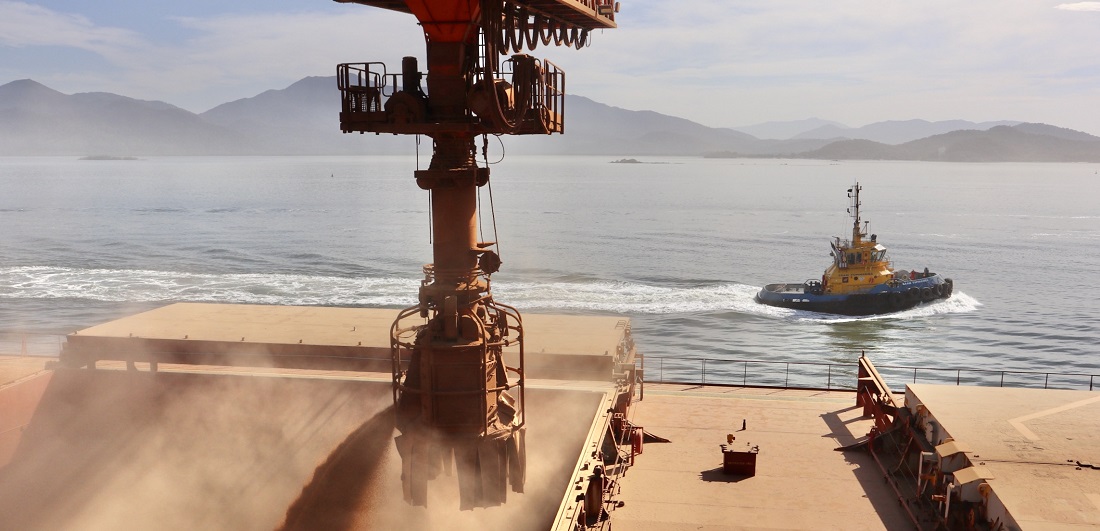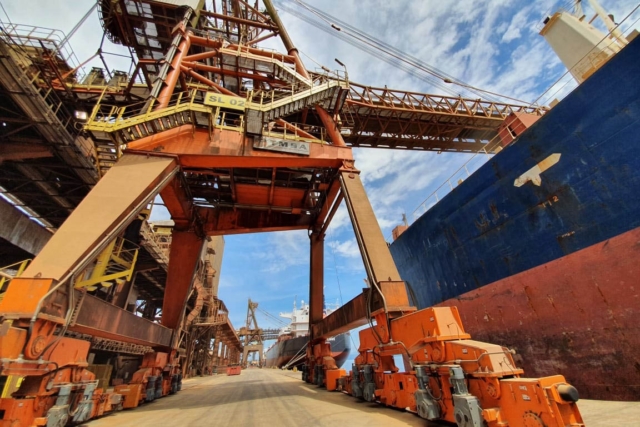
Paranaguá port starts to receive new soybean crop for export
Feb, 24, 2021 Posted by Ruth HollardWeek 202108
Gradually, the 20/21 soybean crop is arriving at the Port of Paranaguá. The movement of trucks that unload the product at the terminals in Paraná has intensified and should reach 2,000 vehicles per day, starting in the first week of March. The expectation is that about 2 million tons will be received in March.
“There was a certain delay due to the climatic conditions during planting and crop development. The months of January and February typically show less movement, so it is good time to do maintenance works on the flow structure”, says the CEO of Portos do Paraná, Luiz Fernando Garcia.
On February 1st, only 221 trucks passed through the Paranaguá screening yard. On the 11th, the movement reached 793 vehicles, but it was only beginning on February 14th that movement increased above 1000 trucks, at times reaching more than 1700. This month, about 500,000 tons of soy arrived for unloading at the terminals in Paraná.
“The trend is for the arrival of soy to intensify and the rest of the year should not see much slack for the flow of export bulk. We are going to work with the yard running at maximum capacity for the next five to six months ”, evaluates André Maragliano, who represents ATEXP (the association of terminals of the Paranaguá export corridor).
To the east of the pier at the Port of Paranaguá, the soy is drained through the Corex (the export corridor). In recent months, the complex has undergone maintenance. In partnership with the operators, the necessary adjustments and improvements were made to meet the demand that is about to intensify.
The director of operations for Portos do Paraná, Luiz Teixeira da Silva Junior says that in addition to preventive maintenance, Corex has undergone corrective and predictive maintenance and adjustments to production processes.
“In the past two months, Portos do Paraná and all the terminals involved have prepared their structures for the period of increased shipment. All maintenance was carried out and all processes were reviewed to implement improvements”, says the director.
Across the wharf, public efforts increased the confidence of operators, who invested in new equipment, expanded the storage structure, and improved the hoppers and road and rail discharges.
On the west side of the port, a new integrated terminal will add even more strength to the bulk flow. Private investment came in after the state government expanded berth 201.
According to DERAL (the rural economy department of the state secretariat of agriculture and food supply), the harvest in the State of Paraná is around 5% of the planted area (last year, at this time, the harvest was around 30 %). Currently, the forecast is for the production of a soybean crop of around 20.4 million tons.
“Not only in Paraná but in almost all producing states, the harvest is delayed. Paraná, Mato Grosso, Rio Grande do Sul, all had climatic problems that caused a delay in planting and, now, finally, the rains of January came to hinder the beginning of the harvest”, highlights Marcelo Garrido, an economist at DERAL.
According to him, because of the delay, the rush is great. “The sooner the producer reaps, the sooner he forwards, as he committed to in the signed contracts. Despite the delay, production will be high and the producers’ prospects are good, especially because prices remain high”, says Garrido.
In addition to production in Paraná, part of the soybean production in the states of Mato Grosso, Goiás, Mato Grosso do Sul, São Paulo, Santa Catarina, Minas Gerais, and Rio Grande do Sul are sold through the Port of Paranaguá.
-
Other Logistics
Jun, 03, 2019
0
Santos-Guarujá bridge project awaits environmental license to begin works
-
Ports and Terminals
May, 15, 2024
0
Porto Alegre Port Submerged; Infrastructure Damage Could Reach R$600 Million
-
Meat
Nov, 10, 2023
0
Brazil’s Beef Industry Nearly Match Record Exports in 2023
-
Other Cargo
Apr, 09, 2024
0
New Regulation Streamlines Customs Process for Importers of Key Products in Argentina


